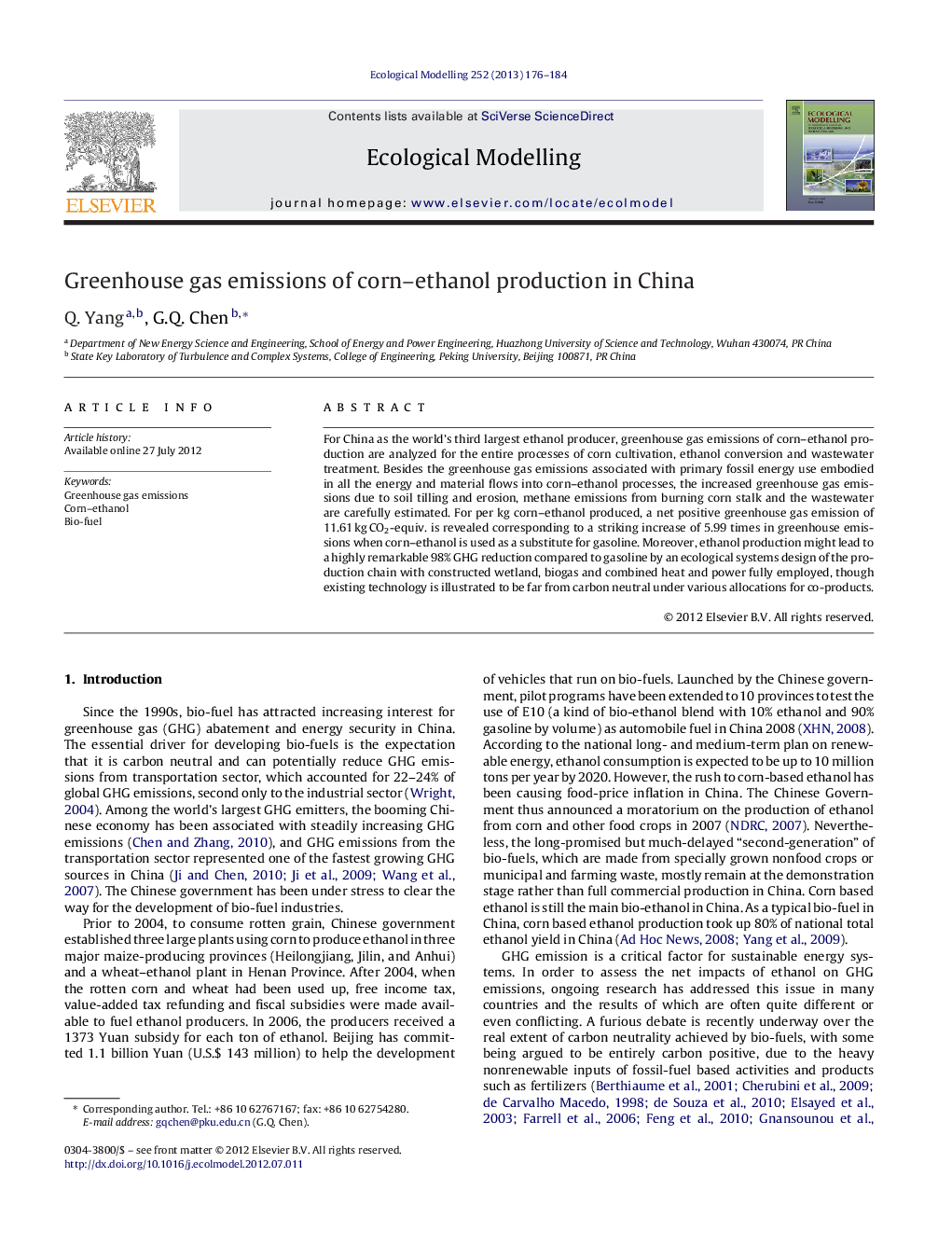| Article ID | Journal | Published Year | Pages | File Type |
|---|---|---|---|---|
| 4376200 | Ecological Modelling | 2013 | 9 Pages |
For China as the world's third largest ethanol producer, greenhouse gas emissions of corn–ethanol production are analyzed for the entire processes of corn cultivation, ethanol conversion and wastewater treatment. Besides the greenhouse gas emissions associated with primary fossil energy use embodied in all the energy and material flows into corn–ethanol processes, the increased greenhouse gas emissions due to soil tilling and erosion, methane emissions from burning corn stalk and the wastewater are carefully estimated. For per kg corn–ethanol produced, a net positive greenhouse gas emission of 11.61 kg CO2-equiv. is revealed corresponding to a striking increase of 5.99 times in greenhouse emissions when corn–ethanol is used as a substitute for gasoline. Moreover, ethanol production might lead to a highly remarkable 98% GHG reduction compared to gasoline by an ecological systems design of the production chain with constructed wetland, biogas and combined heat and power fully employed, though existing technology is illustrated to be far from carbon neutral under various allocations for co-products.
► A greenhouse gas (GHG) emission assessment is performed for corn–ethanol in China. ► Corn cultivation, ethanol conversion and wastewater treatment are included. ► A net GHG emission of 11.61 kg CO2-equiv./kg corn–ethanol is found. ► An increase by 5.99 times in GHG emissions is revealed compared to substituted gasoline use. ► Remarkable carbon reduction can be achieved by an ecological systems design.
